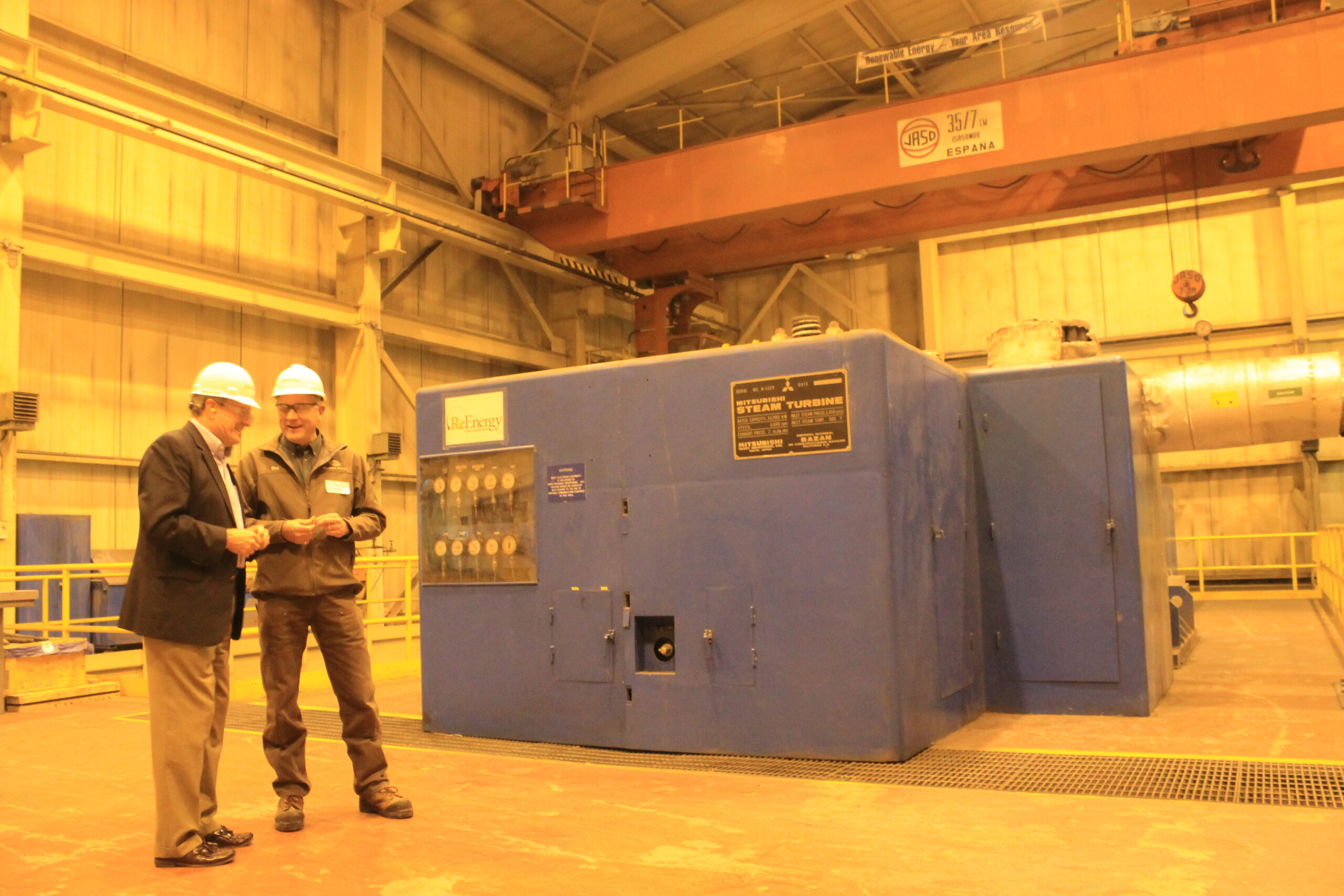
FORT FAIRFIELD, Maine — After winding down this fall, the ReEnergy biomass plant in Fort Fairfield ended operations on Sunday, Nov. 11, amid a falling market for biomass electricity.
The 37-megawatt plant on Cheney Grove Road opened in 1987 to generate electricity from lumber mill residues and wood chips. The plant produced enough power for about 34,000 homes and most recently employed 21 people, said ReEnergy Communications Director Sarah Boggess. One employee will be maintained there, some may relocate to ReEnergy’s Ashland facility, and others will be laid off in December and offered severance packages, Boggess said.
“We have been operating in a very challenging market environment,” Boggess said. “The operation is not financially viable due to this confluence of circumstances,”
Maine’s six biomass energy plants have been hit hard by the declining value of renewable energy credits in southern New England states, as well as lower electricity rates in general. In 2016, Maine enacted a two-year $13.4 million aid package for ReEnergy’s Ashland and Fort Fairfield facilities and Stored Solar’s West Enfield and Jonesboro plants in an effort to support the struggling facilities and the logging industry.
Aroostook County’s biomass plants also have been challenged by the northern Maine grid, which has to route exported power through New Brunswick transmission systems. That additional routing has resulted in additional power utility charges to the biomass plants.
Boggess said that the Ashland biomass plant, although it is offline until early December, will be continuing operations. The Ashland plant was built in 1993, but was renovated in 2014 and can handle a greater mix of wood residues with greater operational efficiency.
Boggess said it is not yet clear how many Fort Fairfield employees will be laid off and that their end date has not been determined.
Laid-off employees will be offered a severance package and health insurance benefits for three months, Boggess said. The company will work with the Maine Department of Labor’s Rapid Response team to meet with the employees and offer them help with unemployment benefits, job searches and training, Boggess said.
The company has not decided what to do with the plant and property, Boggess said. It is possible the equipment could be sold, she said.
Fort Fairfield town manager Jim Risner said that ReEnergy paid approximately $140,000 this year in real estate and property taxes. The company will continue paying taxes at its current assessment, though the property’s value could change if major equipment is sold, he said.
Boggess said that ReEnergy will keep working with economic development officials to recruit a potential co-location partner such as a manufacturing company that could use electricity and heat from the plant.
In October 2017, ReEnergy and the group Biobased Maine issued a request for proposals seeking pitches from businesses to co-locate with the company’s Maine biomass plants. Co-located manufacturing businesses can use lower-priced electricity and excess heat and hot water by setting up next to one of the biomass plants.
- The ReEnergy biomass plant in Fort Fairfield, seen from Route 1A in October 2017, generates about 260,000 megawatt-hours of electricity each year, enough to power about 34,000 homes. (Anthony Brino)





